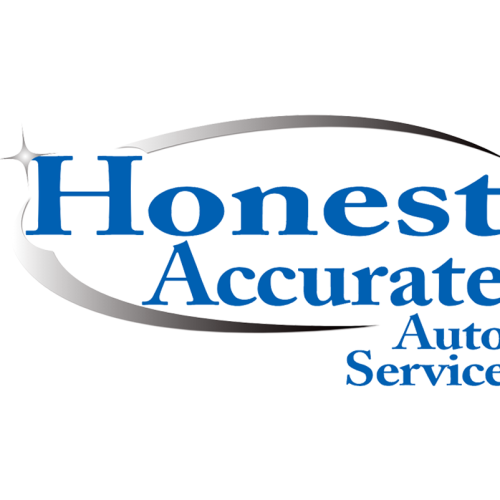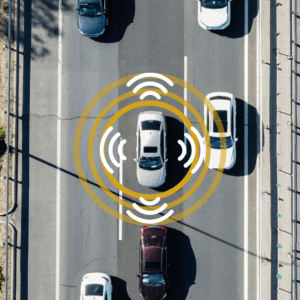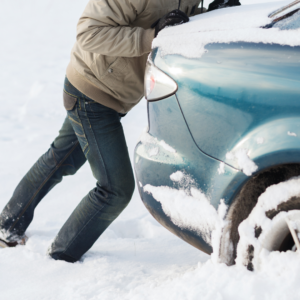Brakes are designed to wear with time and, therefore require periodic maintenance and repairs to stay safe. Since being able to stop quickly is essential for you and your family’s safety, keeping an eye (and ear!) on your brakes is very important.
Some indications that your brakes need some work include:
- Squealing and/or grinding when you depress the brake pedal
- Having to depress your brake pedal further than you used to (“squishy” feel)
- Feeling a “shudder” in the steering wheel upon braking
- Vibration or clunking sound when braking
- Parking Brake no longer works effectively
Any of these can be indicators of impending brake failure, or simply the need for brake maintenance. All brake pads, shoes, rotors and drums are designed to wear down with use and will require periodic replacement.

Thickness of brake pads can be accurately measured once the wheels are removed. New brake pads are 10-12mm thick. When the pad is worn to about 2mm thick, wire sensors on the brake pads will alert you by making a squealing or grinding sound. This lets you know that the brake pads require replacement very soon.
However, the squealing sound will only continue for a week or two, and then the sound may disappear (for now). The new sound you will begin to hear is metal-on-metal grinding…not good!
If the pads are not replaced, not only do you lose stopping power, the metal-to-metal contact can result in permanent damage to the rotors or drums. When permanent damage such as overheating/warping, heat cracks, or metal-to-metal grooving has occurred on the rotors or drums, they will require replacement. Replacing brake pads in a timely manner will be significantly less expensive than having to replace rotors.
In order for the pads and rotors to have optimum surface contact  area and ensure smooth stopping power, we generally machine the rotors/drums at the same time we replace the brake pads or shoes. Rotors can be machined up until the time they become too thin and fall below the manufacturer’s recommended specifications.
area and ensure smooth stopping power, we generally machine the rotors/drums at the same time we replace the brake pads or shoes. Rotors can be machined up until the time they become too thin and fall below the manufacturer’s recommended specifications.
Brake fluid should be flushed approximately every 3 years, regardless of mileage (check your Owner’s Manual for specific recommendations for your particular vehicle). Brake fluid is essential for the hydraulic pressure that allows your brakes to function properly, while lubricating the seals in the Master Brake Cylinder.
Timely brake maintenance and service keeps you safe, decreases repair costs, and saves you money by warding off those very expensive accident costs associated with poorly functioning brakes.




